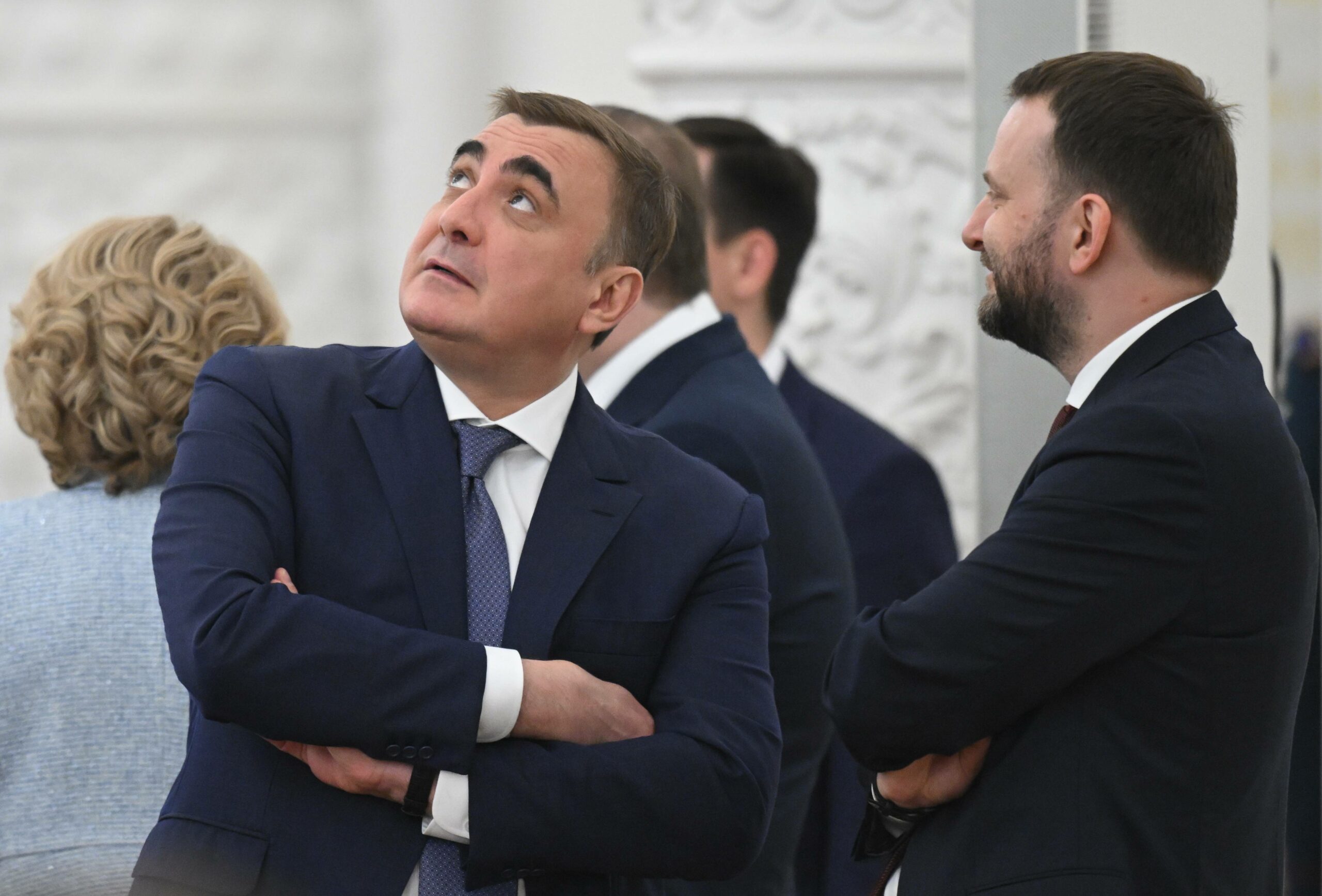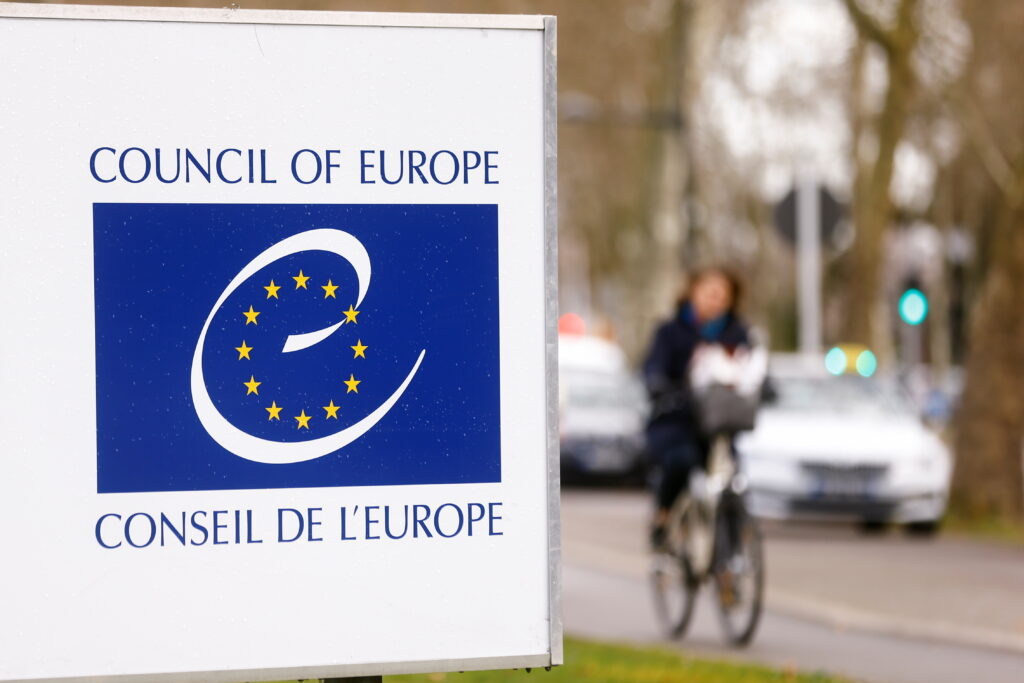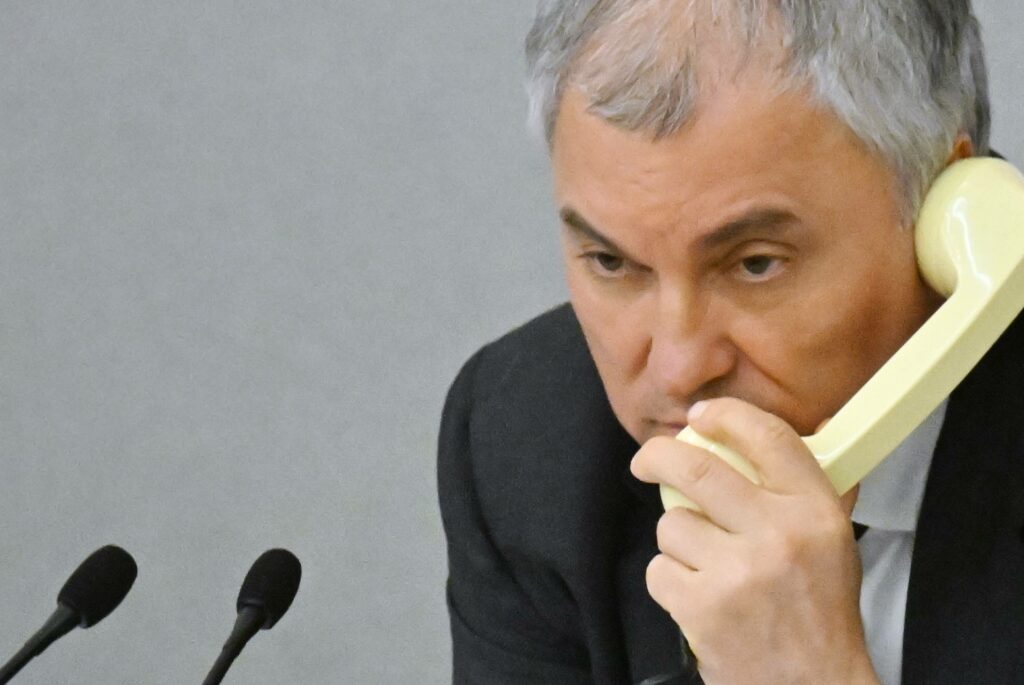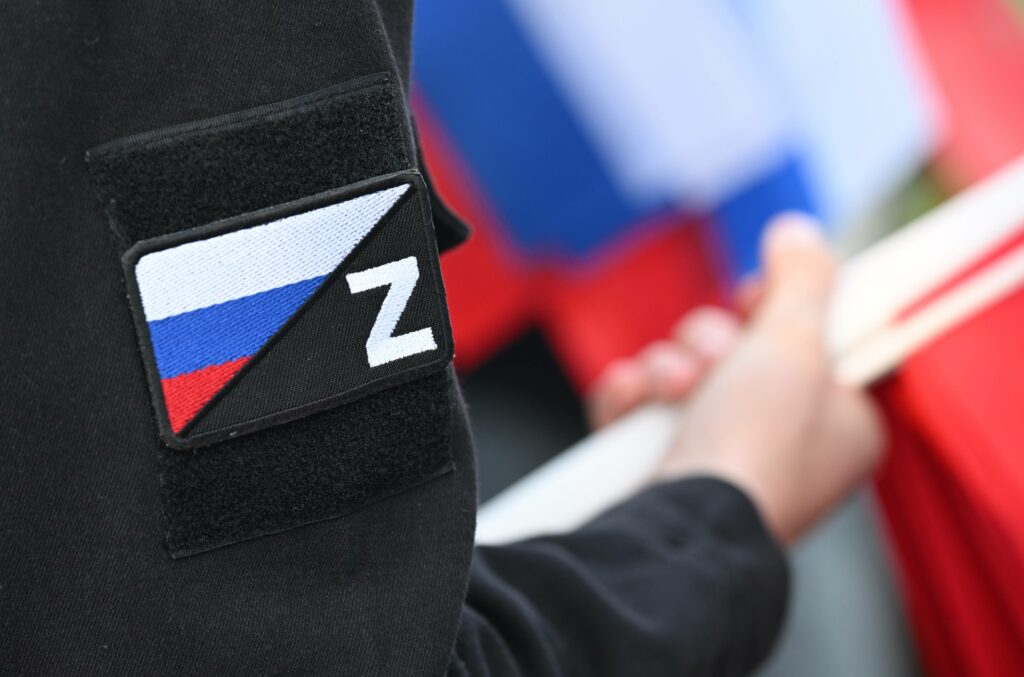Contrary to expectations, Vladimir Putin made only minimal reshuffling in the ‘civilian’ part of the cabinet, the presidential administration and state-owned corporations. Serious shifts have occurred only in the security structures, i.e. the Ministry of Defence and the Security Council (and the heads of other security agencies have also retained their posts). Thanks to Putin’s conservative approach to personnel, most of the elite groups in his inner circle have retained the previously acquired control over resources and budgetary flows, and some of them even managed to win a small gain. Some of the clans lost positions in the security sector while keeping others in the ‘civilian’ structures for the time being, and some of the ‘civilians’ never managed to achieve an expansion. We will review the balance of elite groups in the Russian cabinet and the presidential administration as they stand today. Most likely, this balance will be preserved in the near future but will remain fragile. The conservative approach to personnel has clearly disappointed the most ambitious members of Putin’s circle, who are gradually beginning to deal with rival clans by force.
Rostec keeps defence lines
The group centred around Sergey Chemezov, head of Rostec, turned out to be among the main beneficiaries of Putin’s conservatism in personnel. Firstly, Chemezov himself retained the position of the head of this state-owned corporation. Secondly, the status of First Deputy Prime Minister was granted to Denis Manturov, a representative of ‘big Rostec’, i.e. the state-owned corporation and the Ministry of Industry and Trade, who largely works for the benefit of the alliance. This promotion is rather status-oriented: in the absence of the prime minister, the first deputy will fulfil his duties and chair cabinet meetings, and this status can also be recorded among the assets of Chemezov’s group (even if ‘dormant’ ones). Finally, this clan has retained the Ministry of Industry and Trade. Instead of Manturov, who grew ready to become First Deputy Prime Minister, the lead of the Ministry was given to Anton Alikhanov, the former governor of the Kaliningrad Region, who had worked for the Ministry before assuming leadership in the region. The Rostec clan also retained the Kaliningrad Region as a special region of Russia, with Alexey Besprozvannykh, a former deputy minister of industry, being appointed its governor. Thus, in the conditions of war and absence of competition from Western, Japanese and South Korean companies, Sergey Chemezov continues to control important budget flows: the budget is spent on defence and import substitution, both of which are the responsibility of Rostec and the Ministry of Industry and Trade. The Kaliningrad Region and its leaders have always been watched with special attention by the federal centre, which means that Alexey Besprozvannykh can expect a promotion in the structures of power in a few years. Consequently, his patrons will get yet another representative of their circle in one of the most important posts in the country. Vladimir Putin demonstrated special favour to Sergey Chemezov by separately receiving him together with Denis Manturov, while the heads of other state-owned corporations were received at a collective meeting. Moreover, the Rostec group became a beneficiary of Sergei Shoigu’s dismissal as defence minister and sought his departure. Shoigu criticised the work of this state-owned corporation, both publicly and behind the scenes, complaining to the country’s top leaders about the poor quality of equipment and its limited supply. Chemezov had to publicly respond to these complaints.
Nevertheless, Sergey Chemezov’s clan failed to carry out a serious personnel expansion. Its representative, i.e. governor of the Nizhny Novgorod Region Gleb Nikitin, was considered as one of the main candidates for the post of Minister of Economic Development, but was ultimately never appointed to the post. Putin’s conservatism in personnel reshuffling is already clearly hampering the ambitions of the Rostec group, and the group will most likely try to expand using semi-violent methods, some of which have been successfully applied in the attack on Sergei Shoigu.
Transport for the Rotenberg brothers
A group of representatives of Putin’s inner circle, the Rotenberg brothers, have retained control of the transport industry. Former Minister of Transport Vitaly Savelyev was given the post of Deputy Prime Minister for Transport, created in the cabinet specifically for him. Prior to joining the cabinet, Savelyev ran the Aeroflot Airlines, based at Sheremetyevo Airport, which is controlled by the Rotenberg brothers, directly or indirectly owning 66% of the airport’s shares. Thus, Savelyev can be seen as a person who is very close to this clan. The lead as the Minister of Transport was assumed by another representative of this group: former governor of the Kursk Region and former head of Rosavtodor (the Federal Road Agency) Roman Starovoyt, whom experts have clearly linked with the Rotenberg clan for a long time (although Starovoyt himself denies this affiliation). The Kursk Oblast itself can hardly be seen as part of the core assets of this group, but the group has nevertheless retained it: the lead in the region was assumed by Starovoyt’s deputy Alexei Smirnov. The Russian elite circles animatedly discussed the information that Moscow Mayor Sergey Sobyanin’s group had aspired to take over the core asset of the Rotenberg clan, namely the Russian Railways, the main operator of railway transport in Russia. Maxim Liksutov, the deputy mayor of Moscow, could have headed the company, but Oleg Belozyorov, the current head of Russian Railways, who knows the Rotenberg brothers closely, was able to hold on to his seat.
So far Russia is clearly not going to reduce budgetary investments in infrastructure projects. According to Vladimir Putin, money will be invested in the construction of a new high-speed railway between Moscow and St. Petersburg as well as new motorways and bridges. Most of such projects usually involve companies controlled by the Rotenberg brothers, and people who are close to the brothers in key positions in the transport industry will help distribute budget flows in the ‘right direction’. This clan is clearly content with its current possessions and has no plans to carry out personnel expansion, also because of its unwillingness to enter into conflicts with other groups. Therefore, Vladimir Putin’s conservative personnel policy favours the Rotenberg brothers the most: thanks to this policy they are not losing anything while being hardly interested in potential new acquisitions.
The Kovalchuk ideology
Other influential members of Putin’s entourage, the Kovalchuk brothers, continue to hold on to what can be called the ideological and educational sphere, as well as assets they consider important for themselves, such as Rosatom and the Leningrad Region (one of the most developed regions of Russia). First deputy head of the Presidential Administration Sergey Kiriyenko, a representative of the Kovalchuk group, has retained his position. This means that both Kiriyenko and his patrons will continue to have a significant influence on the appointment of governors. Kiriyenko organises training for candidates for heads of regions at the so-called ‘school of governors’, i.e. personnel training courses at the Russian Academy of National Economy and Public Administration. As a rule, these programmes are attended by nominees of various influential groups, but after completing the school the graduates additionally begin to follow the guidance of their ‘teachers’, i.e. Kiriyenko and his entourage. The ‘Big Political Block’ of the Presidential Administration, controlled by the Kovalchuk brothers, has managed to expand its sphere of influence considerably during Kiriyenko’s term in office: in many respects, he is the person who determines the foundations of education policies. Kiriyenko’s people work in important positions in the Ministry of Education and the Ministry of Science, as well as in key universities. With this sphere being important to Vladimir Putin, it is unlikely that the Kovalchuk brothers would want to lose control over it. The brothers have also retained influence in Rosatom (headed by Kiriyenko’s man Alexey Likhachev) and the Leningrad Region, governed by Alexandr Drozdenko, who is close to the clan.
It should also be mentioned that the Kovalchuk brothers have failed to carry out a significant personnel expansion, although they really aspired to do it. Sergey Kiriyenko intended to move to a job in the cabinet while retaining control over the political bloc. Moreover, the clan endeavoured to assume management at one of the key resources in the power structure, i.e. Gazprom or Rosneft. The group tried to promote Boris Kovalchuk (son of Yury Kovalchuk) as the CEO in one of these companies, but Kovalchuk junior was eventually appointed head of the Audit Chamber, which is well below the initial ambitions.
Therefore, it can be expected that the Kovalchuk brothers and Kiriyenko will continue to apply the tried-and-tested tactics, i.e. seize new spheres of influence by creating new structures (this is best illustrated by ANO Dialogue, an organisation which monitors social media and runs PR communication for government agencies in social media profiles), or deploy their people to important positions in agencies which are not yet under the clan’s control.
Trotting in place
Vladimir Putin’s conservatism in personnel affairs has begun to have a negative impact on the group headed by Moscow Mayor Sergey Sobyanin, which had been a source of promising candidates for the federal government for some time now. In 2020, former deputy mayor of Moscow Marat Khusnullin became deputy prime minister for construction, former head of the mayor’s economic department Maxim Reshetnikov was appointed federal minister for economic development, and Vladimir Yakushev, who had worked with Sobyanin back in the Tyumen Region, moved to the post of the plenipotentiary envoy in the Ural District. It was expected that Sobyanin’s team could again become a personnel pool for the power structures. As mentioned above, deputy mayor Maxim Liksutov was among the candidates for the CEO of Russian Railways, and Anastasia Rakova, Moscow’s deputy mayor for social affairs, could have become the federal deputy prime minister in the same domain. Yevgeny Kuyvashev, governor of the Sverdlovsk Region from Sobyanin’s team, was also considered for a ministerial post. None of these potential decisions were adopted. In a context where preserving one’s position is not considered a lesser evil but, rather, a small win, there is no need for personnel pools.
This does not mean that Sergey Sobyanin has fallen out of the ranks of Putin’s favourite officials. He remains to work as the head of the capital city, and his people remain in the federal government, continuing to lead in most parts of the Ural District. The demand for Sobyanin’s talent, i.e. the ability to cultivate cadres and promote them among higher-ranking officials, has been weakening. As a rule, the Moscow Mayor’s people are ready to take vacant positions that, for one reason or another, cannot be occupied by people representing other influential clans. At present, however, there are hardly any such positions left in the federal government.
The group led by the chief of Rosgvardiya Viktor Zolotov (who previously headed the Federal Security Guard Service, i.e. Putin’s security agency) is in a similar situation. The group attempted personnel expansion, seeking to appoint Putin’s aides as ministers of the security bloc and heads of security agencies. In 2015, former presidential guard Aleksey Dyumin became deputy defence minister, while his colleague Dmitry Mironov became deputy interior minister. A year later, they went to become governors in Russia’s regions, with the expectation of growth in the ministries where they aspired to work. However, for the time being, both Dyumin and Mironov are content with their positions as presidential aides. The most significant successes of the group include the appointment of the clan’s nominees Yevgeny Zinichev and Alexandr Kurenkov as consecutive ministers of emergency situations.
Mercenary bureaucrats
There is a pool of key posts in power structures (including that of prime minister) that Vladimir Putin does not put at the disposal of the clans, appointing and reappointing managers who are either personally loyal to him or clearly not affiliated with any influential group. This is how posts were retained in the hands of Mikhail Mishustin, and Deputy Prime Minister Marat Khusnullin, who enjoys Putin’s personal favour but is loyal to Mishustin, Sobyanin, and his native region of Tatarstan. The president increased the weight of Deputy Prime Minister for Energy Aleksandr Novak by vesting economic powers in him. Novak himself belonged to the Krasnoyarsk clan headed by Alexander Khloponin, former governor of the Krasnoyarsk Kray and then deputy prime minister. This group has long since lost its former influence, and Aleksandr Novak can now be classified as a bureaucrat who is personally loyal to Putin. Anton Vaino, head of the presidential administration, can also be seen a bureaucrat with such a status. The Ministry of Defence has been transferred from the control of Sergei Shoigu’s group to the supervision of former Deputy Prime Minister Andrey Belousov, who is also personally loyal towards the president.
New groups are gradually emerging around Putin’s most heavyweight bureaucrats. For example, Mikhail Mishustin’s men, i.e. Dmitry Grigorenko and Alexey Overchuk, are working as deputy prime ministers, while Marat Khusnullin’s man Irek Faizullin holds the post of construction minister. The clan of Moscow Mayor Sergey Sobyanin began to surface in a similar fashion a few years ago. However, it is still way too early to say that full-fledged clans under Mishustin and Khusnullin have evolved within the Russian elite.
Some clans stepping back
The heaviest and most obvious losses were suffered by the clans with main assets concentrated in the power bloc and by the weaker clans. Sergei Shoigu’s group has lost control over the Ministry of Defence. The influential post of Secretary of the Security Council was left by Nikolai Patrushev, who became presidential aide for shipbuilding. Shoigu, in turn, took Patrushev’s chair. However, the transfer to the Security Council can hardly be called sufficient compensation for the clan of the defence minister, who is used to managing significant financial resources. Nikolai Patrushev was given a position that does not correspond to his former influence. While these clans have been weakened, they have not lost everything yet, but their key resources are now concentrated in the civilian sector. Patrushev’s son Dmitry has become deputy prime minister for agriculture (the post of the minister was assumed by his close associate Oksana Lut). Andrey Vorobyev, a representative of Shoigu’s clan, is in charge of the Moscow Region, one of Russia’s most resource-rich administrative units. Nevertheless, Shoigu’s and Patrushev’s groups have already lost the main possibility to protect the ‘civilian’ assets, which was ensured by the influence of the clans’ frontmen within the power structures. This means that these resources may be targeted by other influential players who have either retained or multiplied their power.
Another example is Andrey Turchak’s resignation from his post as secretary of the United Russia General Council (and, in fact, from his position as the main frontman of the ruling party) and his exile to Altai. Turchak’s father is Vladimir Putin’s long-time acquaintance from the days when the Russian president worked in the mayor’s office in St. Petersburg. Turchak was a ‘prince’ in the federal government and avatar of the collective clan of influential St. Petersburg groups who knew the president or members of his inner circle, but were not part of that inner circle. Given its limited access to Putin, this clan could not be called strong, which is most likely why its representative became an easy victim. Andrey Turchak demonstrated ambitions and tried his best to show his loyalty in order to get a significant advancement. At the same time, he was in contact with the late Yevgeny Prigozhin and supported him before the mutiny. An ambitious player without a backing of a strong clan, he became a convenient victim, and his removal from the playing field will help stronger groups to distribute the vacated positions and resources.
Vladimir Putin is trying to maintain a balance of clan interests by preventing a significant redistribution of resources in favour of any particular group. The clans which do not seek expansion, such as the Rotenberg brothers and their entourage, become the beneficiaries of this approach. However, this policy is not welcome by more ambitious and aggressive groups, such as the clans of Sergey Chemezov and Viktor Zolotov. They are ready to attack competitors who prevent them from expanding their influence or aggressively promoting their representatives to available positions. These parts of Putin’s inner circle is ready to fight for resources they already hold and will fight Putin’s ‘stability of clans’ as much as they can.










